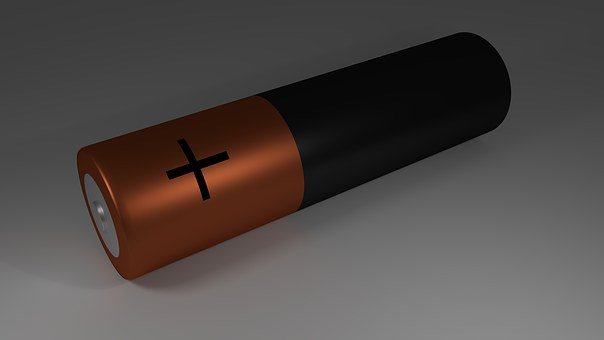Fire can be a problem when it causes by unexpected sources and damages a lot of things. The lithium battery sometimes although very rarely found to cause a fire. You may ask, is a lithium battery safe to use? How common are lithium battery fires?
No, lithium batteries do not cause fires. It is quite safe to use a lithium battery as it is highly unlikely that the battery will cause fire or explosion. The chance of happening so is 1 in 10 million!
Let’s have a look about it in detail below.
Do lithium batteries cause fires?
Every battery generates power by converting chemical energy into electrical energy. It accomplishes this by leveraging chemical processes to produce a flow of electric current from one substance to another.
The key point to remember is that the materials utilized (lead-acid, alkaline, nickel-cadmium, and so on) all have distinct charging characteristics.
The anode component in lithium batteries is lithium in metal or ion (Li-ion) form. They also have several advantages.
Lithium-ion batteries are easy to charge and offer the most energy density across any battery technology, which means they provide more power into a smaller area. They can also offer up to three times the voltage of conventional battery kinds.
However, producing all much power generates heat, which can result in battery fires – or even explosions. This is certainly true whenever a battery is damaged or malfunctioning, allowing excessive chemical reactions (also known as a thermal runaway) to happen.
What causes lithium batteries to catch fire?
To comprehend why a Li-ion battery might burst into flames or explode, one must first explore how the battery is constructed. Electrochemical processes in a Li-ion battery gather and discharge electrical energy.
Lithium ions flow from one electrode to another as electrical energy is taken or released from the battery.
The electrodes are immersed in an electrolyte, a liquid that facilitates ion transport and is composed of lithium salt and organic solvents.
The organic solvents are the primary source of fire in Li-ion batteries.
Moreover, the electrode (cathode) that is positively charged in the battery holds oxygen, which can be discharged if somehow the battery is exposed to certain conditions, such as an internal short, high heat, and so on.
This indicates that the Li-ion batteries include all of the components required to sustain a fire.
In the event of a strong heat incident, the Li-ion battery may leak part of the combustible electrolyte and several gas mixtures such as hydrogen, methane, carbon monoxide, and hydrofluoric acid.
The volume and pace at which the gas is emitted are determined by many characteristics relating to battery chemistry as well as the quantity of electrical energy contained.
The discharge of these combustible gases is what causes flames and explosions.
How to minimize the risk of lithium batteries catching fire?
If indeed the battery is subjected to heated circumstances or if the battery or an internal element is damaged, the danger of fire or explosion rises.
There are various techniques to reduce the likelihood of an accident:
- High temperatures should be avoided when storing. Batteries should not be stored in hot automobiles. Do not let a blanket cover your laptop. Put your phone out of a heated pocket.
- Avoid storing all of your lithium-ion battery-containing products together. All of your electrical equipment will be in one suitcase while you travel, particularly on an aircraft.
This is inevitable since the batteries must be carried in your carry-on; however, you can typically leave some gap between battery-containing things.
Even though the presence of lithium-ion batteries in short proximity will not raise the likelihood of a fire, if such an accident occurs, the other cells may catch fire and exacerbate the situation.
- Keep the batteries from overcharging. Because these batteries don’t suffer from the “memory effect” as much as other kinds of rechargeable batteries.
They do not perform properly, though, if they are entirely depleted before recharging and perhaps if they are overcharged.
Battery overcharging is a common problem with car chargers. Using a charger that is not designed for the battery might result in harm.
How do you know if your lithium battery is bad?
There are usually a few warning indications before a faulty lithium battery catches fire. Here are some things to keep an eye out for:
Heat: It is typical for batteries to create heat while charging or in operation. However, when the lithium-ion battery in your gadget seems excessively hot to the touch, there’s a significant possibility it’s faulty and might spark a fire.
Swelling: Another typical symptom of a lithium battery failure is battery swelling. If your battery appears enlarged, you should cease using it right away. Similar symptoms include any kind of bump or protrusion, as well as leaking from the device.
Noise: It has been claimed that failing lithium batteries create whistling or cracking sounds.
Odor: A strong or odd odor emanating out of the battery is also a warning indicator.
Smoke: This one is a little easier to spot. However, if your gadget is smoking, a fire already has begun.
How do you stop a lithium battery fire?
Whenever you detect the lithium-ion battery overheating, consider moving the gadget away from combustible items and disconnecting the current supply.
If you are in an electric car, you should instantly exit and never try to stop lithium battery fires on your own. Your safety and security are considerably more crucial; instead, dial 911.
In the event of a fire, a regular chemical extinguisher should be used because these are classified as Class B fires. A popular myth is that lithium-ion batteries have real lithium metal.
They however do not, which is why you must not use a Class D fire extinguisher.
How likely is a lithium battery to explode?
Lithium batteries seldom burst or lead to damage to their surroundings. Unfortunately, the battery detonated in a few instances.
The same feature that makes lithium-ion batteries so useful leaves them vulnerable to bursting into flames or exploding. Lithium is a fantastic energy storage substance. It powers the automobile when released in a trickle. The battery does have the ability to explode if it is discharged all at once.
Short – circuits are the top reason for lithium-ion battery fires and explosions. This happens whenever the plastic separator cracks, enabling the anode and cathode to make contact with one other. Once those two factors mix, the battery overheats.
There are many reasons why the separator breaks including, manufacturing faults, different external issues, charging problems, etc.
Conclusion
Safety is important for everyone. Hence, you should always take good care of your cars, mobiles, accessories, and other stuff including the battery.
It is always good care and precautions that can reduce any kind of risk. And lithium battery is very hard to cause any trouble unless there were some problems.
Related Posts:

